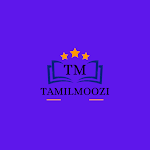English education, introduced with theobject of producing clerks, also produced a
new
English-educated middle class. This classcame under the influence of
western ideas andthoughts. Christianity also had its effect on thenewly
emerging middle class. Though small innumber, the educated middle class
began to take
a lead in political as well as in reform movements.The
Indian reformers were, however, quitehesitant to subject their old
notions and habitsto critical scrutiny. Instead they attempted
toharmonize both Indian and Western cultures.Their ideas and their
actions helped to mitigatesocial evils such as sati, female infanticide,
and
child marriage and various superstitious beliefs.12th class
Economics Half Yearly Exam 2023 - 2024 Model Question Paperandthoughts.
Christianity also had its effect on thenewly emerging
middle class. Though small innumber, the educated middle class began to
takea lead in political as well as in reform movements.The Indian
reformers were, however, quitehesitant to subject their old notions and
habitsto critical scrutiny. Instead they attemptedRamakrishna (l836–86),
a simple priestof Dakshineswar near Kolkata, emphasisedthe spiritual
union with god through ecstaticpractices such as singing bhajans. An
ardentworshipper of goddess Kali, the sacredmother, he declared that the
manifestations ofthe divine mother were infinite. In his view,all
religions contain the universal elementswhich, if practised, would lead
to salvation.He said, “Jiva is Siva” (all living beings are
God). Service for man, must be regarded as God.’12th class Economics Half Yearly Exam 2023 - 2024 Model Question.
Besant (1847–1933) as itspresident after the death ofOlcott. She played a role in
Indian nationalist politics,and formed the Home RuleLeague demanding homerule to India on the lines of Ireland. AnnieBesant spread Theosophical ideas through her
newspapers called New India and Commonweal.Deoband was a revivalist movementorganized by the orthodox Muslim Ulema. TheUlema under the leadership of MuhammadQasimWanotavi (1832-80) and Rashid AhmadGangotri (1828-1905) founded the school atDeoband in the Saharanpur district of the U.P
in 1866. The school curricula shut out Englisheducation and western culture. The instructionimparted was in original Islamic religion andthe aim was moral and religious regeneration ofthe Muslim community.Maulana Mahmud-ul-Hassan became thenew Deoband leader. The Jamait-Ul-Ulema(council of theologians) led by him gave aconcrete shape to Hassan’s ideas of protection of the religious and political rights of the Muslims in the overall context of Indian unity.
Pandithar Iyothee Thassar was disappointewith the Hindu dharma, which served as thebasis for propagating and validating caste inHindu society. Influenced by the Theosophistorganizer, Colonel H.S. Olcott, he went to SriLanka in 1898 and converted to Buddhism. Inthe same year, he founded the Sakya BuddhistSociety at Madras to construct the rational religious philosophy through Buddhist religion.After defeating the French and theirIndian allies in the three Carnatic Wars, theEast India Company began to consolidateand extend its power and influence. However,local kings and feudal chieftains resisted this.The first resistance to East India Company’sterritorial aggrandisement was from PuliThevar of Nerkattumseval in the Tirunelveliregion. This was followed by other chieftains
in the Tamil country such as Velunachiyar,Veerapandiya Kattabomman, the Marudhubrothers, and Dheeran Chinnamalai. Knownas the Palayakkarars Wars, the culmination ofwhich was Vellore Revolt of 1806, this earlyresistance to British rule in Tamilnadu is dealt with in this lesson.
12th class| Economics |Half Yearly Exam 2023 - 2024 | Model Question Paper






0 கருத்துகள்